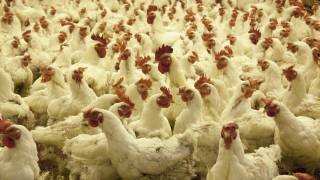First H5N1-related Human Fatality Confirmed in the U.S.

The Louisiana Department of Health today reported a patient who had been hospitalized with the first human case of highly pathogenic avian influenza (HPAI) H5N1 in Louisiana and the United States recently died.
Due to patient confidentiality and respect for the family, this will be the final update about the patient.
The patient was over the age of 65 and was reported to have underlying medical conditions. The patient contracted H5N1 after exposure to a combination of a non-commercial backyard flock and wild birds.
This report was not a case of H5N1 person-to-person spreading.
LDH’s extensive public health investigation has identified no additional H5N1 cases nor evidence of person-to-person transmission. This patient remains the only human case of H5N1 in Louisiana.
HAPI avian influenza (bird flu) is widespread globally and has been causing outbreaks in wild birds, poultry, mammals, and dairy cows for a few years. There have been 67 confirmed human cases of H5N1 bird flu in the United States since 2022.
As of January 7, 2025, the U.S. CDC says the current public health risk for H5N1 to the general public remains low. However, people who work with birds, poultry, or cows or have recreational exposure to them are at higher risk.
Furthermore, the best way to protect yourself and your family from H5N1 is to avoid sources of exposure. That means avoiding direct contact with wild birds and other animals infected with or suspected to be infected with bird flu viruses. Do not touch sick or dead animals or their droppings or bring sick wild animals into your home.
While one avian influenza vaccine has been approved for human use (Audenz™) by the U.S. FDA, and several vaccine candidates are in the U.S. stockpile, they are not CDC-authorized for use, nor are they commercially available in the U.S.
Our Trust Standards: Medical Advisory Committee


